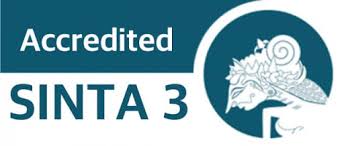Pengaruh Ekspektasi Guru terhadap Prestasi Belajar Peserta Didik Kelas VI Semester I di Madrasah Ibtidaiyah (MI) Al-Mu’awwanah Jombang
DOI:
https://doi.org/10.54069/attadrib.v4i1.116Keywords:
Positive Expectations, Negative Expectations, Learning AchievementsAbstract
This study aims to dig deep information about the effect of positive and negative teacher expectations on the learning achievement of students in MI. The method used is a survey-associative quantitative research method. The population as well as the research sample was 20 people from the teacher for variable X and 30 students for variable Y. Data analysis was carried out by using multiple regression analysis techniques. From the data analysis conducted, several research findings indicate that positive expectations (X1) and negative expectations (X2) simultaneously do not have a significant effect on student achievement (Y). The strength of the relationship between Variable X1 (Teacher Positive Expectations) and X2 (Teacher Negative Expectations) simultaneously to Y (Student Learning Achievement) is 0.304 = 30.4% with the influence of variable X on Variable Y of 9.3% and 90, 7% is influenced by variables other than the expectation variable. The regression equation that can be formed from the results of data processing is as follows: Y '= 5.310 + 0.006X1 - 0.094X2. From the above equation it can be seen that the effect of positive expectations (X1) on student learning achievement (Y) is positive. This means that if teachers' positive expectations increase, the learning achievement of students will also increase. However, if the positive expectations of the teacher decrease, the learning achievement will also decrease. While the direction of the negative expectation variable (X2) on learning achievement (Y) is negative. That is, if negative expectations increase, learning achievement will decrease. But, on the contrary, if the teacher's negative expectations decrease, the learning achievement of students will increase
Downloads
References
Adirestuty, F. (2019). Pengaruh Self-Efficacy Guru dan Kreativitas Guru Terhadap Motivasi Belajar Siswa dan Implikasinya Terhadap Prestasi Belajar Pada Mata Pelajaran Ekonomi. Jurnal Wahana Pendidikan, 4(1), 54–67.
Arends, R. I. (2008). Learning To Teach: Belajar untuk Belajar Buku Satu, Terj. Helly Prajitno Soetjipto dan Sri Mulyantini Soetjipto. Pustaka Pelajar.
Aslan. (2016). Kurikulum Pendidikan Vs Kurikulum Sinetron. Khazanah: Jurnal Studi Islam Dan Humaniora, 14(2), 135–148.
Aslan. (2019). Hidden Curriculum. Pena Indis.
Aslan & Wahyudin. (2020). Kurikulum dalam Tantangan Perubahan. Bookies Indonesia. https://scholar.google.com/scholar?oi=bibs&hl=en&cluster=17745790780728460138
Asri, K. Z., Witono, H., & Affandi, L. H. (2020). Pengaruh Ekspektasi Guru dan Self-Efficacy Siswa Terhadap Hasil Belajar Pada Siswa Kelas V di SD Gugus V Cakranegara Tahun Pelajaran 2019/2020. Pendas: Primary Education Journal, 1(1), 19–24.
Dewi, N. C. & Aslan. (2015). Psikologi Belajar Pada Pendidikan Anak Usia Dini. Madinah: Jurnal Studi Islam, 2(1), 39–48.
George, D., & Mallery, P. (2018). IBM SPSS Statistics 25 Step by Step: A Simple Guide and Reference. Routledge.
Hayes, A. F. (2020). Statistical Methods for Communication Science. Routledge.
Jacob, S. A., & Furgerson, S. P. (2012). Writing interview protocols and conducting interviews: Tips for students new to the field of qualitative research. Qualitative Report, 17, 6.
Jensen, E. (2009). Guru Super dan Super Teaching: Lebih dari 100 Strategi Praktis Pengajaran Super., Terj. Benyamin Molan. PT Indeks.
Ormrod, J. E. (2009). Psikologi Pendidikan Membantu Siswa Tumbuh dan Berkembang., Terj. Amitya Kumara. Er Langga.
Wong, H. K., & Wong, R. T. (1999). The First Days of School: How to be an Effective Teacher. Harry K. Wong Publications.
Downloads
Published
Versions
- 2021-09-08 (2)
- 2021-04-07 (1)
How to Cite
Issue
Section
License
Copyright (c) 2021 Eliyah, Imam Muttaqin, Aslan

This work is licensed under a Creative Commons Attribution-ShareAlike 4.0 International License.





